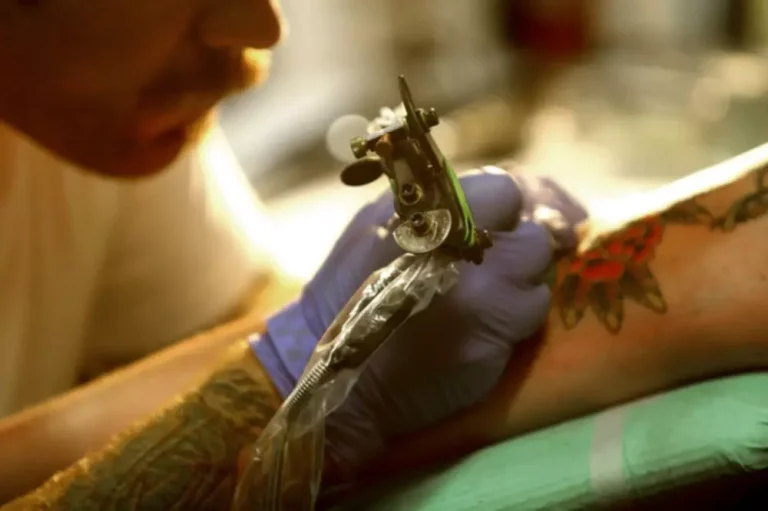
Outpatient programs take longer to complete because they allow patients the flexibility to come from their own homes. While an inpatient rehab is measured in days to months, outpatient rehab is measured in months to years. Ninety days is the average outpatient duration, but this could extend further or even indefinitely. However, it’s important to keep in mind that the length of detox can vary depending on the substances used by the individual. For example, the number of days it takes to work through acute alcohol withdrawal symptoms will be different from the days needed to detox from other drugs.
Province launches secure care for people with brain injury, mental illness, severe addiction
Detoxification is the first step in the recovery process, and depending on the substance or substances used, there may be medications that can ease the symptoms of withdrawal, making it as safe and comfortable as possible. While many addiction treatment programs last 30, 60, or 90 days, the duration an individual spends in treatment depends on their individual needs and the severity of their addiction. The actions announced are part of the Province’s Safer Communities Action Plan and goal of creating safe, healthy communities for everyone.
Finding a Center
- Researchers have studied the experiences of many people who have recovered from substance use and identified key features of the recovery process.
- Inpatient or residential rehab are both terms used to describe any services that involve the individual leaving their home to live at the facility during their treatment.
- It also keeps them away from negative influences for longer periods of time.
- In one study, two-thirds of the adults relapsed in social situations in which they experienced urges and temptations to drink or use.
- Rehab facilities vary in what they offer and how long their programs last.
Different treatment facilities utilize different approaches throughout the course of a 60-day stay in drug rehab. Medication, individual treatment, counseling for families, and social therapy are often used in conjunction with one another while the precise mix depends on the unique circumstances and requirements of each client. Twelve-step programs are an alternative treatment option that is often available in certain 60-day drug rehab programs. Substance use disorder how long is drug rehab (SUD) may include drugs and alcohol but can also consist of over-the-counter medications. Many different forms of substance use treatment are available, but not all programs are appropriate for all people—some recover after a few days, while others may require a longer treatment program. Another reason a longer rehab program can be beneficial is because it allows individuals who struggle with addiction the opportunity to work on the root causes of the addiction.
Our Facilities

After lunch, patients undergo cognitive behavioral therapy, group sharing, or family therapy. Some rehab centers invite speakers or workshop hosts (often previous patients far along the recovery process) to discuss their careers and experiences. According to the National Institute on Drug Abuse (NIDA), longer treatment programs reap a higher chance of success, https://ecosoberhouse.com/ recommending 90-day inpatient drug rehab. If a person is working, surrounded by a reliable support system, emotionally and financially stable and working through the motivation behind substance use, their treatment could be shorter. Outpatient treatments offer a lower level of care compared to residential treatment, so the programs may take longer to complete.


Rather than days and weeks, people tend to measure outpatient treatment in terms of months and years. Approximately 90 days is the average duration of outpatient treatment, but some people will continue treatment indefinitely. However, in cases where treatment is undergone as part of a full continuum of care, a client’s time in outpatient care may be significantly shorter. Many people starting professional addiction treatment will begin the path to recovery with a period of detoxification. Detox is a general term used to describe the body’s process of removing alcohol and other drugs from the system. How long treatment lasts varies; however, recovery is ongoing even after you leave rehab.
Outpatient treatment is an essential part of many recovery journeys, offering benefits such as increased flexibility and affordability. This type of treatment allows individuals to continue with their daily lives while receiving the necessary support and therapy. This makes outpatient addiction treatment a valuable option for those who cannot commit to full-time residential rehab. Research has shown that longer-term rehab programs are often more effective in achieving sustained sobriety. The duration of stay is carefully tailored to the individual’s needs, with the aim of ensuring comprehensive recovery and reducing the risk of relapse. Rehab programs can range from as short as 7-10 days to over a year.
- Your treatment depends on the drug used and any related medical or mental health disorders you may have.
- This phase of treatment may also be called intensiveinpatient therapy or residential therapy depending on the intensity of treatment.
- More extensive substance abuse treatment is necessary if other mental health disorders need attention alongside addiction.
- Additionally, there are also state-funded options such as Medicaid programs that may be able to help with the cost of rehab as well.
- You can also prepare beforehand to ease your transition and minimize disruption to your life.
- If you find that your relationship with someone misusing substances is beginning to cause emotional turmoil that stunts your daily functioning, consider bolstering your support network.
What Does an Addiction Treatment Program Include?
The motivational force of new goals eventually helps rewire the brain so that it has alternatives to the drive for drugs. It’s hard to leave addiction behind without constructing a desirable future. Nevertheless, experts see relapse as an opportunity to learn from the experience about personal vulnerabilities and triggers, to develop a detailed relapse prevention plan, and to step up treatment and support activities. In addition, self-care is a vital foundation for a healthy new identity. At the very least, self-care should include sleep hygiene, good nutrition, and physical activity.
The FDA has only formally approved the drug for use during surgery, but its availability allows doctors to prescribe it “off-label” for various mental and physical ailments. Various studies and scientists use different terminology to describe this phenomenon. Some use “spontaneous remission” while others use “spontaneous recovery.” There’s also debate over what constitutes treatment.
